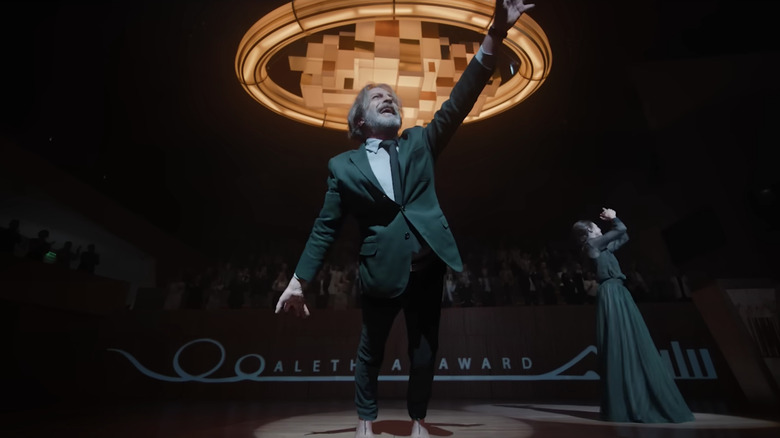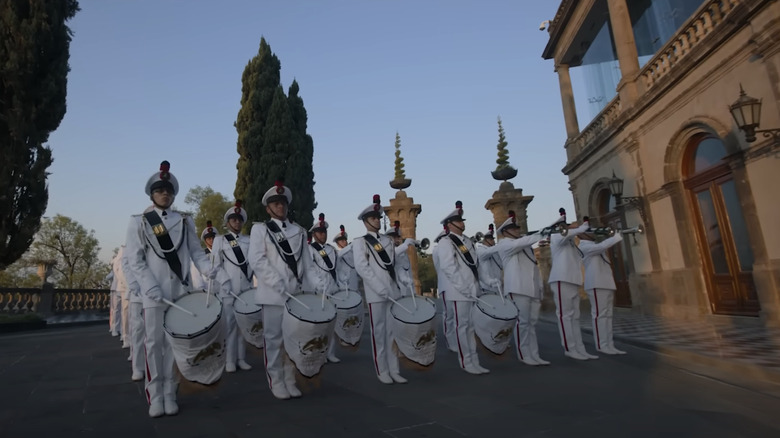Why Alejandro Inarritu Considers Bardo The 'Most Challenging Filmmaking' Of His Career
Two-time Best Director winner Alejandro González Iñárritu has spent a lot of time on the press tours for his last few films telling stories about the extreme challenges of making them. Whether it was crafting the one-take look of "Birdman of (The Unexpected Virtue of Ignorance)" or the brutal weather conditions making "The Revenant," the lengths to which he will go to push his directorial style further seemingly knows no bounds. Some find this self-congratulatory and annoying; some find it wondrous. I am someone who may not love — or even like — everything he does, but that doesn't change the fact that there will be moments of inventive visual beauty I can't help but marvel at when I see them.
Well, Iñárritu is back on the press trail for his latest film, "Bardo, False Chronicle of a Handful of Truths," and once again, the talk about how hard it was to make are top of mind. The film is a thinly-veiled exploration of Iñárritu's own insecurities, ego, and emotions, following a Mexican documentary filmmaker played by Daniel Giménez Cacho. Unlike his last two films which won him Oscars, "Bardo" has not exactly been the apple of most critics' eyes, including /Film's own Marshall Shaffer. Many see it as an act of self-indulgence, and when he says things about making the film like, "You become like a doctor who is doing open-heart surgery. You cannot get emotional, you just need to be incredibly effective and pragmatic. The patient can die if you get emotional," to The Hollywood Reporter, it only feeds that feeling.
But making a film is incredibly difficult, particularly if you working on a grand scale with material directly reflecting your own life. Any artist worth their salt wants it to be perfect.
Emotional hurdles can be harder than physical ones
As opposed to the physical challenges of his previous work, what made "Bardo" tough was Iñárritu putting everything going on in his head onto the page. It's one thing to tell someone else's story, but telling your own takes an emotional openness not a lot of people have. He tells THR:
"When Nicolás Giacobone and I were putting the script together, he became kind of a therapist. It was deep introspection that came out as an intimate auto-fiction. I let myself go. I think at my current age, I'm stronger now and I can laugh about myself. I approach most things with humor, in order to illuminate the pain or understand it. So the script writing was a sensitive process, but then when you go to make it, you just have to execute it."
The physical production was also colossal endeavor. Just look at the trailer to see the massive scale of "Bardo." Wrangling something that epic with the intensely intimate would be taxing on any filmmaker. He even calls making it "the most challenging filmmaking I have ever done in my life," and explains:
"[E]very single frame, and every single movement was completely pre-visualized and rehearsed. It was incredibly complex, but it was done with complete control. So I really needed to do a lot of physical work to achieve that ... And then, obviously, you have to put it out into the world — this thing you have been constructing in an incredibly intimate, interior space. It feels vulnerable. But I have a very positive feeling of affirmation with this film."
"Bardo" may not be to everyone's liking, but if Iñárritu had to put in all this effort to make the film he wanted, good on him.

